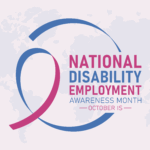
Enough Excuses: It’s Time for a Living Wage in Nova Scotia
Statement from the Nova Scotia Federation of Labour
Nova Scotia businesses have received hundreds of millions of dollars in tax breaks, subsidies, and reduced red tape over the last five years, yet they still claim they can’t afford to pay workers a living wage. This is an enormous injustice for minimum wage workers in our province. They need to stop crying that they can’t afford it. In the past five years, businesses have reaped significant benefits: the small business tax rate was reduced from 2.5% to 1.5%, while the income threshold for the lower rate was increased from $500,000 to $700,000. The provincial HST was decreased by one percentage point, effective April 2025, saving businesses, large retailers, and an estimated $500 million over five years.
The provincial government has also provided more than $100 million in direct support to businesses since 2020. In addition to this, government efforts to reduce “red tape” have yielded $21 million in business savings since 2021, with an additional $800,000 expected annually from new legislation. These are savings that rarely, if ever, reach the pockets of frontline workers. Let’s look at the truth about “Not Affording” higher wages. Despite this steady stream of breaks and subsidies, business lobby groups continue to argue that they “can’t afford” higher salaries. That claim doesn’t hold water. The truth is that workers are falling behind while businesses continue to receive government support year after year. In October, Nova Scotia’s minimum wage increased to $16.50, which is still far from what people need. Let’s be clear, minimum wage work is not just for teenagers. In Nova Scotia, 85% of low-wage workers are over 20 years old, and the vast majority are not students. Many are parents, caregivers, and full-time workers in retail, food service, care, and other essential sectors. These are adults trying to keep up with skyrocketing rents, grocery bills, heating costs, and childcare expenses. Over the last 25 years, inflation has risen faster than wages.
That means every year, minimum wage workers can buy less with their paycheque. Meanwhile, businesses pocket the benefits of tax cuts and subsidies. The evidence is clear: raising wages does not lead to runaway inflation or massive job losses. In fact, when workers earn more, they spend more in their communities on local shops, services, and essentials. That spending strengthens small businesses and builds more stable communities. It’s time for business to stop hiding behind excuses. They’ve been given plenty of breaks. Now it’s time for them to share the benefits. Workers deserve paycheques that cover the cost of living, not just survival. We must move beyond token minimum wage increases and commit to a living wage for all workers. We have all heard the cry of business lobby groups, who often claim that raising wages will push up prices. But that argument doesn’t hold up. We all remember when coffee shops in Alberta struggled to find workers several years ago and had to raise wages to $18 or $20 an hour to attract staff; the price of a cup of coffee didn’t suddenly skyrocket. The truth is, it’s not wage increases in the minimum wage that drive inflation. Corporate CEOs often receive substantial raises, pay increases that far exceed those of their employees, along with generous bonuses on top of that. If those raises really translated into higher prices, the cost of everyday goods would have skyrocketed long ago. A 50-cent increase for minimum wage workers is nothing compared to executive pay packages. Let’s be honest: raising wages for frontline workers doesn’t cause inflation; it strengthens our communities. Unchecked corporate greed poses the bigger risk. Paying a living wage isn’t just fair, it’s how we build a stronger, healthier, and more just province for everyone. Over the last quarter-century, wages at the bottom have fallen behind inflation. That means a dollar earned today buys much less than it used to. If the bosses receive significant increases every year, then those at the bottom of the chain should also benefit. Without bold action, more families will be pushed deeper into precarious living, forced to choose between rent, food, prescriptions, and heating. Moving to a living wage will enable many families to make ends meet, but it will not eradicate poverty.
It’s time for the business community to stop using the “can’t afford it” argument as an excuse. Governments have already provided substantial tax breaks and regulatory relief for businesses; those gains should be reflected in the paychecks of workers who actually need them. It’s time to raise the floor and commit to a living wage. Nova Scotians working for minimum wage need pay increases that equate to more than a few pennies, and remember that without workers, there would be no business.







